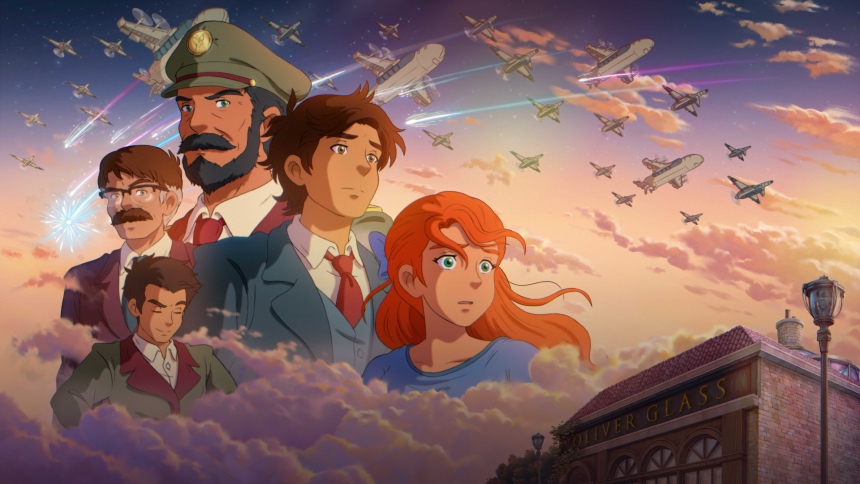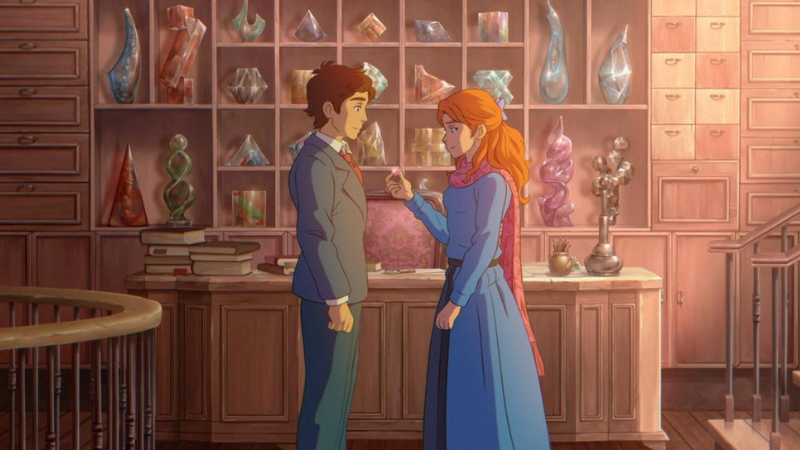Annecy 2024 Review: THE GLASSWORKER, First Pakistani Anime Is Humanist Tale of Youth in Troubled Times
Usman Riaz's 2D animated film, Pakistan's first hand-drawn feature film, offers a coming-of-age tale of two generations amidst military conflict.

Multi-hyphenate Usman Riaz made a significant milestone, as his film The Glassworker became Pakistan's first 2D animated hand-drawn feature. Made by Pakistan's Mano Animation Studios co-founded by the director, the film has been presented at the Cannes Film Festival and showcased at the world's leading animation film festival in Annecy.
The Glassworker draws inspiration from Riaz's personal experiences in post-9/11 Pakistan, a time marked by political instability. Although the setting is allegorical, the film's themes of conflict, artistry, and human resilience are rooted in these experiences.
The story follows Vincent, a young glassblower learning his craft from his father, Thomas, in a town reminiscent of Pakistan. Their lives change with the arrival of an army colonel and his daughter, Alliz, against a backdrop of impending war.
Thomas is a widower running a glass shop and a glassblowing workshop in the basement of Waterfront Town. Young Vincent is his apprentice, displaying grit and talent. The story is told in retrospect as adult Vincent is preparing for his big exhibition of glass art. Riaz goes into the past to explore Vincent’s motherless coming-of-age amidst a war conflict and his father’s firm pacifist stance, which eventually causes their ostracization and Vincent’s bullying.
The narrative core of The Glassworker is a Romeo and Juliet-type tale, accompanied by a plotline exploring father-children relationships, with Vincent and Alliz’s fathers representing opposing sides of the conflict and different ideologies. Their children, however, are united by a passion for art: Vincent for glass and Alliz for the violin. Yet, both generations face dilemmas.
Vincent’s father is being extorted to help the military, despite his contempt for war and killing, while Alliz is confronted by Vincent for not being a true artist, as she only interprets what others have composed. Vincent, torn between loyalty to his father and his beliefs and his attraction to the charming redhead Alliz, faces dilemmas of his own, including discrimination for coming from a different class or for being opposed to the war.
Both Vincent and Alliz have to confront their fathers to start living lives according to their own rules breaking with conventions, artistic or social. And to chart their own journeys through life.
The screenplay, co-written by Riaz and Moya O'Shea, utilizes a non-specific geopolitical context, providing a timeless anchoring, although the parallels and references to British-Indian history are not hard to deduce. The Glassworker tells the story largely through the perspective of Vincent, who in his adult years reminisces on his youth and the circumstances of growing up in a war-torn country while facing youthful decisions. The war conflict is largely kept outside the boundaries of Waterfront Town, with a few exceptions when the city comes under attack.
Somewhat superfluously, the story includes a magical realist aspect of a djinn, which might be just a figment of Vincent’s imagination. While this element adds pathos to his story, it does not significantly impact the plot.
The magical realist touch in a story with light steampunk leanings is mostly part of the homage the film pays to the hand-drawn animation techniques of Studio Ghibli, particularly the works of Hayao Miyazaki. The anime aesthetics, with a tinge of nostalgia, are fitting for the story, while some bird-eye isometric shots evoke early Final Fantasy video games.
The Glassworker seems to be the film for the moment. While it is construed as a family drama, it is a humanist tale aimed at youth, addressing the harsh realities and uncertain future during a military conflict.
Instead of hopelessness and resignation, the younger generation is seen as maintaining focus on their passions, creating art as a gesture of survival and a way to endure dramatic events in their young lives. The film's underlying message is one of resilience and hope, showcasing how art and creativity can provide solace and strength, even in the darkest times.
The film recently screened at the 2024 Annecy International Animation Fim Festival.
The Glassworker
Director(s)
- Usman Riaz
Writer(s)
- Moya O'Shea
- Usman Riaz
Cast
- Maya Saroya








